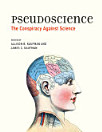Reconstruction of Wave-Particle Duality and its Implications for General Chemistry Textbooks
About this ebook
They come to some revealing conclusions, including the fact that very few textbooks discussed issues such as the suggestion, by both Einstein and de Broglie, and before conclusive experimental evidence was available, that wave-particle duality existed. Other large-scale omissions included de Broglie’s prescription for observing this duality, and the importance of the Davisson-Germer experiments, as well as the struggle to interpret the experimental data they were collecting. Also untouched was the background to the role played by Schrödinger in developing de Broglie’s ideas. The authors argue that rectifying these deficiencies will arouse students’ curiosity by giving them the opportunity to engage creatively with the content of science curricula. They also assert that it isn’t just the experimental data in science that matters, but the theoretical insights and unwonted inspirations, too. In addition, the controversies and discrepancies in the theoretical and experimental record are key drivers in understanding the development of science as we know it today.






